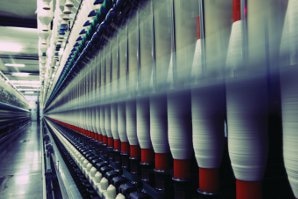The MQC+ benchtop NMR analyzer from Oxford Instruments measures fluorine, water, oil and solid fat in a range of samples and is commonly used for quality control and quality assurance.
Fast, Accurate, Non-Destructive Analysis
It takes a few seconds to a few minutes to complete an analysis using the MQC+, which means that plenty of samples can be processed swiftly and efficiently. As NMR signals are produced from all parts of the sample not only the surface, even if they are opaque, more accurate measurements are assured. NMR measurements do not impact the sample; therefore samples can be retained for repeat measurements or to be tested using other methods.
Minimal Sample Preparation with no Hazardous Solvents or Chemicals
Grinding or other types of sample preparation are seldom required. Samples are just moved into a sample tube, conditioned and then tested. The MQC+ NMR technique does not need solvents or other chemicals, thus eliminating the need for expensive disposal processes, fume cabinets and specially trained staff.
Easy to Use
The MQC+ benchtop NMR analyzer is simple to use. Lab Technicians need minimal training, therefore can be productive very quickly. The software offers the operator step-by-step guidance with precise on-screen prompts; there are also status indicator lights at the sample chamber entrance. Operator prompts can be modified and displayed in any language.
In a number of industries, there is a requisite to reliably, accurately and easily measure the quantity of a liquid or viscous component in the presence of other solid materials. The MQC+ meets this necessity with a technology that avoids the need to separate the various phases; making sample preparation a minor activity, removes the need for widespread operator training and provides rapid accurate results. That means a more consistent product from manufacturing operations, reduced costs and improved process control.
Applications
Oxford Instruments’ development and applications teams have created industry-specific applications for the following:
- Textile - Spin finish on fiber, also known as Oil Pick-Up (OPU), lubricant, Finish on Yarn (FoY), and avivage
- Polymers - Xylene solubles in polypropylene, polymer density and crystallinity, plasticizer in PVC, oil in rubber and fluorine content
- Petroleum - Oil content in waxes, hydrogen content in fuel and wax content in petroleum products
- Agriculture - Oil in dried olive paste, oil and moisture in oilseeds and their residues, and oil in dried palm mesocarp
- Food - Oil in snack foods, fat in foodstuffs, total fat in chocolate and Solid Fat Content (SFC)
- Consumer products - Fluorine in toothpaste and lotion on fabric
- Other - Fluorine in powders such as alumina and fluorspar, and limestone filler in asphalt
Textile Application

The efficient processing of fibers, which are additionally processed into yarns and in turn knitted or woven into produce textiles, is based on several properties including the electrostatic charge and the coefficient of surface friction. Control of these properties is accomplished by applying a carefully controlled quantity of an oil-based coating onto the fibers.
These liquid coatings are applied at a range of stages in the manufacturing process, at times as early as fiber extrusion in artificial fiber manufacture, but at times as late as application to woven or non-woven fabrics.
Liquid coatings are referred to by many names, such as:
- Texturizing Oil
- Coning Oil
- Spin Finish (SF)
- Finish on Fiber (FoF)
- Oil Pick-Up (OPU)
- Carding Oil
- Carding Lubricant
- Yarn Lubricant (LY)
- Staple Fiber Finish (SFF)
- Finish on Yarn (FoY)
- Lubricant on Thread (LoT)
Application of the precise amount of liquid coating is very important for both performance and economic reasons. Excessive coating can cause insufficient inter-fiber cohesion, uncontrolled fiber behavior, buildup on downstream machinery and problems with downstream processes such as dyeing. Also, too much coating is a pointless increase in cost in a very cost-sensitive industry. Conversely, too little coating results in problems from excessive friction, causing erratic fiber behavior, excessive static charge build-up, yarn breakage and uncontrolled performance in downstream processes.
Oxford Instruments’ Benchtop NMR Analyzer, MQC+, has many advantages over traditional solvent extraction and other commercial instruments for the measurement of oil-based coatings such as:
- Simple and intuitive technique, suitable for inexperienced personnel
- Results within seconds
- No sample preparation, measure on fiber directly
- No solvents or other media needed
- Good repeatability enables accurate measurements at low concentrations
- Industry leading large volume tubes, for better sampling and easy sample preparation
Furthermore, the MQC may also be employed to measure:
- Elastomeric coatings, such as rubber
- Fluorinated coatings
- Fiber crystallinity
- Finish removal, crucial for some applications or prior to further treatments
Benchtop QC analyser for the Man-made Fibre and Textile industry - MQC